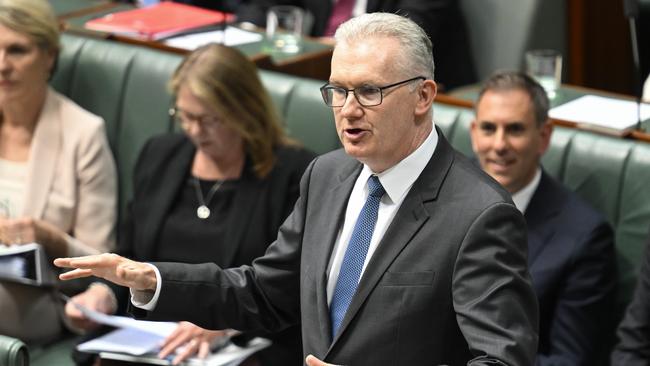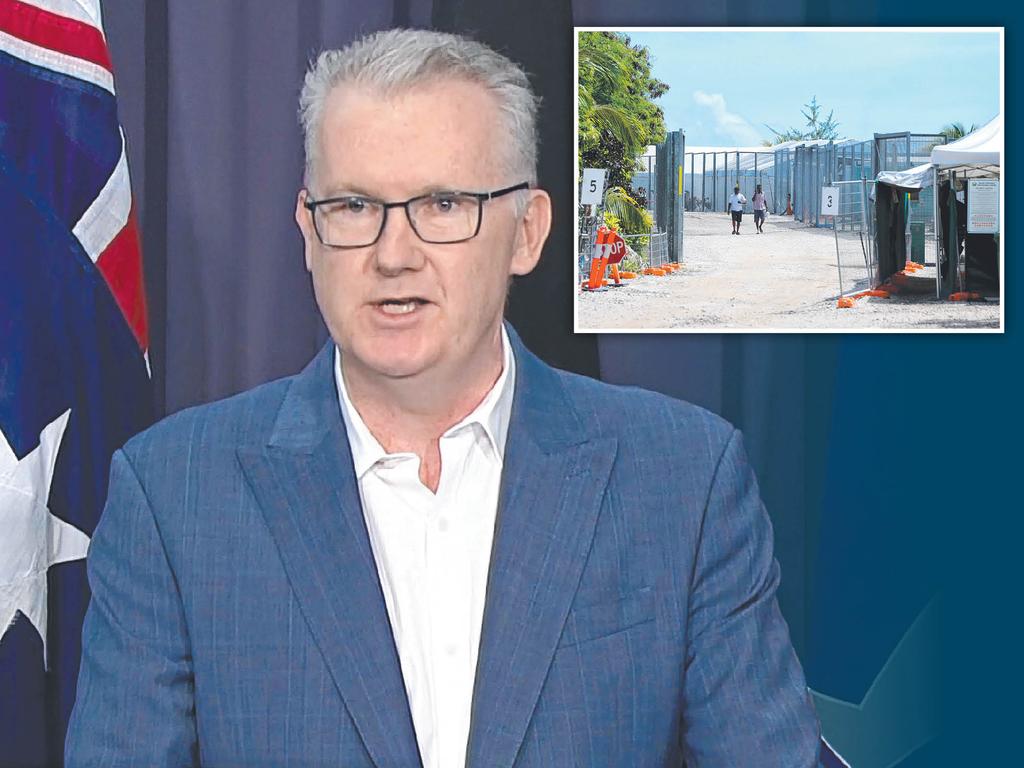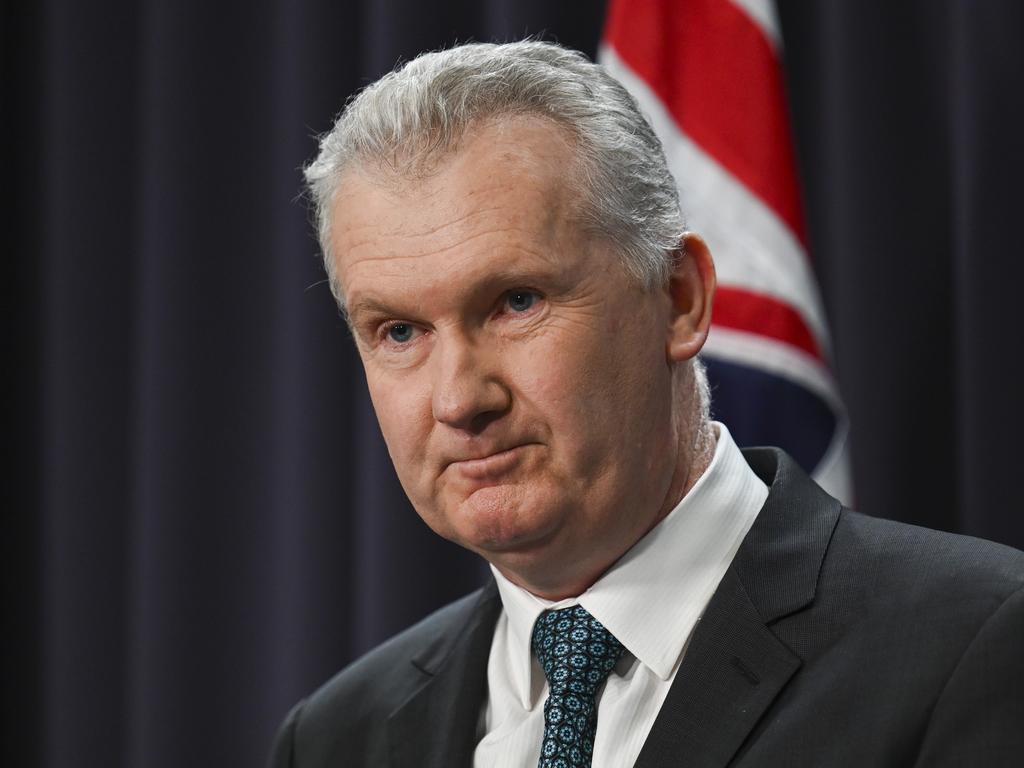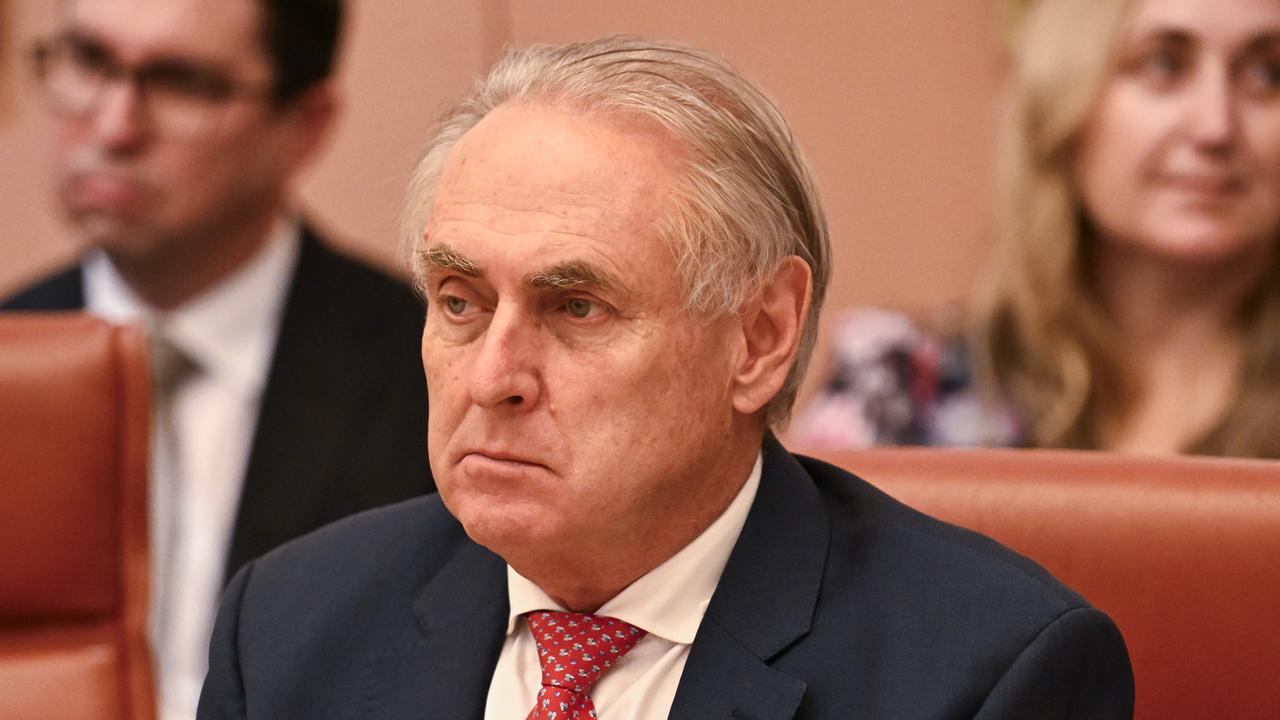Foreign criminals could find silver lining in Nauru agreement
The agreement with Nauru is set to be challenged on whether it is constitutional and whether the government had exercised its powers reasonably.

The Albanese government’s deal to send at least three foreign offenders to Nauru could help bolster the cases of other convicted criminals fighting to stay in the country, lawyers have flagged.
Immigration Minister Tony Burke on Sunday announced that three of the individuals freed from indefinite detention in the wake of the NZYQ High Court decision would be sent to the Pacific nation of Nauru under a new deal between the two governments. The three violent offenders – including one convicted murderer – will be given 30-year visas, accommodation and working rights.
The announcement has triggered concern among immigration lawyers, with the legality of the agreement considered almost certain to be challenged all the way to the High Court.
It could also have implications for the numerous cases of convicted foreign offenders seeking to have the revocation of their Australian visas overturned through the Administrative Review Tribunal. Immigration lawyer Alison Battisson told The Australian that “significant and perhaps determinative weight” should now be placed on the prospect of individuals being removed to Nauru when the ART weighs up whether to reinstate the cancelled visas of foreign offenders.
“It actually goes towards weight for a decision that the person should be allowed to remain in Australia, because of the adverse impacts on people who have forced migration to Nauru,” she said. “There’s all sorts of reports on the terrible mental and physical health of forced migration to Nauru.”
But she noted that while the Nauru deal might help those currently fighting in the ART, the immigration minister would still have the ultimate power to overturn any ART visa decision if they saw fit.
Ms Battisson said the removals to Nauru were likely to be challenged on the constitutionality of the legislation, and whether the power under that legislation had been exercised reasonably. She also noted that the removals could have ramifications in Nauru, with Australia effectively treating the nation “as a penal colony”.

Nauru is only 21sq km in size and is home to fewer than 13,000 people. Adjusted for population size, the introduction of three foreign violent offenders into Nauru is the equivalent of 6000 such offenders arriving in Australia.
Greg Barns SC from the Australian Lawyers Alliance agreed that lawyers would be “examining the possibility” of using the Nauru removals to support the case for foreign criminals to have their visas reinstated. He said the deal could also pose a risk to social cohesion inside Nauru.
“We’re talking about a country that’s impoverished and which has become a dumping ground for Australia,” he said.
“People don’t generally migrate to Nauru voluntarily, because there’s nothing there for them. It’s a failed state.”
Asylum Seeker Resource Centre deputy chief executive Jana Favero said the government’s announcement set a dangerous precedent.
“There has to be consideration of the lawfulness of banishing people offshore, when they’ve been living as part of our community – it’s a complete disregard of people’s human rights,” she said.
“To send people to Nauru is a life sentence and we are considering all options, including legal challenges, and will continue to fight for people’s rights.”
While the government believes that the legislation underpinning the Nauru deal is robust, Mr Burke on Sunday acknowledged that the government would probably end up having to defend it in court. “A little fun fact, there are more legal cases against the immigration minister than any other minister in the Australian government. Always has been, always will be,” Mr Burke said.
“I simply, whenever I make any decision, presume that there’ll be a contest in the courts. And we will go in there in a very strong position as a commonwealth dealing exactly with the legislation that the parliament passed to be able to send people to third countries.”
The cost of the Nauru arrangement to Australian taxpayers is not being disclosed by the government.







To join the conversation, please log in. Don't have an account? Register
Join the conversation, you are commenting as Logout